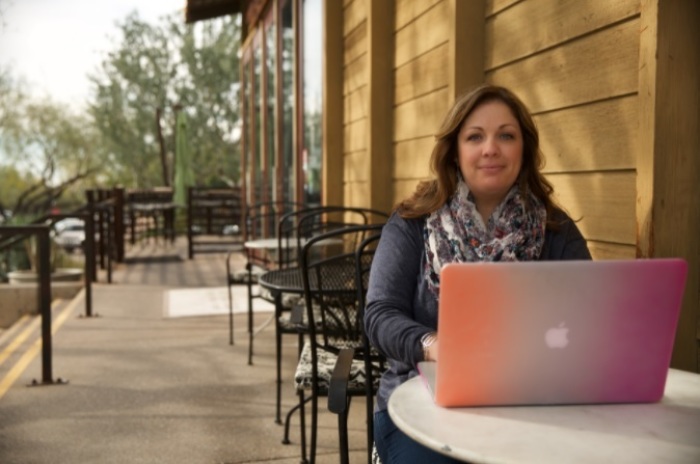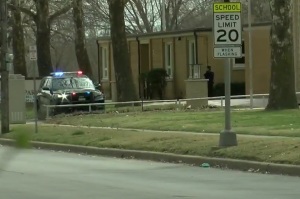Christian web designer opposed to creating same-sex wedding websites loses at 10th Circuit

A three-judge panel of the U.S. Court of Appeals for the 10th Circuit has ruled that a Christian web designer must create websites that conflict with her religious views.
In a 2-1 decision released Monday, the circuit panel ruled against Lorie Smith and her web design company, 303 Creative, stating that they must provide services for same-sex marriages if they offer said services for traditional weddings.
Smith filed a pre-enforcement legal challenge in 2016 to the Colorado Anti-Discrimination Act, arguing that the law would compel her to provide services that go against her religious beliefs and is unconstitutional.
At issue was a plan to start building websites for weddings, but with the desire to not provide those services for same-sex weddings due to religious objections to the unions. In 2017, a district court ruled that Smith couldn't challenge the law and upheld that decision in a subsequent ruling.
Circuit Judge Mary Beck Briscoe, a Clinton appointee, authored the majority opinion. The appeals court acknowledged that 303 Creative could face prosecution under CADA if they refused to build websites celebrating same-sex weddings while offering such services for opposite-sex weddings.
Nevertheless, Briscoe concluded in part that “CADA is a neutral law of general applicability, and that it is not unconstitutionally vague or overbroad.”
“Colorado has a compelling interest in protecting both the dignity interests of members of marginalized groups and their material interests in accessing the commercial marketplace,” wrote Briscoe.
“When regulating commercial entities, like Appellants, public accommodations laws help ensure a free and open economy. Thus, although the commercial nature of Appellants’ business does not diminish their speech interest, it does provide Colorado with a state interest absent when regulating noncommercial activity.”
Regarding the intentions of 303 Creative to put a statement on its website explaining its refusal to create websites for same-sex weddings, the majority opinion concluded that “Colorado may prohibit speech that promotes unlawful activity, including unlawful discrimination.”
Lawyers for Smith say that the state has placed a "gag" rule that prohibits designers and artists from expressing religious views in the online marketplace about marriage that indicate someone is “unwelcome, objectionable, unacceptable, or undesirable."
“Having concluded that the First Amendment does not protect Appellants’ proposed denial of services, we also conclude that the First Amendment does not protect the Proposed Statement,” continued the majority opinion.
“Parts of the Proposed Statement might not violate the Accommodation Clause, such as those parts expressing Appellants’ commitment to their clients or Ms. Smith’s religious convictions. Yet, the Proposed Statement also expresses an intent to deny service based on sexual orientation — an activity that the Accommodation Clause forbids and that the First Amendment does not protect.”
Tenth Circuit Chief Judge Timothy M. Tymkovich, a George W. Bush appointee, authored a dissenting opinion. He argued that “the Constitution protects Ms. Smith from the government telling her what to say or do.”
“But the majority takes the remarkable — and novel — stance that the government may force Ms. Smith to produce messages that violate her conscience,” wrote Tymkovich.
“In doing so, the majority concludes not only that Colorado has a compelling interest in forcing Ms. Smith to speak a government-approved message against her religious beliefs, but also that its public-accommodation law is the least restrictive means of accomplishing this goal. No case has ever gone so far.”
Tymkovich contends that while “Colorado is rightfully interested in protecting certain classes of persons from arbitrary and discriminatory treatment,” the state should not “turn the tables on Ms. Smith and single out her speech and religious beliefs for discriminatory treatment under the aegis of anti-discrimination laws.”
“CADA forces Ms. Smith to violate her faith on pain of sanction both by prohibiting religious-based business practices and by penalizing her if she does speak out on these matters in ways Colorado finds ‘unwelcome’ or ‘undesirable,’” he continued.
Attorney John Bursch of the nonprofit legal group Alliance Defending Freedom, representing Smith, denounced the panel decision and declared plans to appeal the ruling.
“The government should never force creative professionals to promote a message or cause with which they disagree. That is quintessential free speech and artistic freedom,” Bursch said in a statement.
“Lorie is happy to design websites for all people; she simply objects to being forced to pour her heart, imagination, and talents into messages that violate her conscience.”
Critics of 303 Creative’s efforts include Americans United for Separation of Church & State. The progressive advocacy group joined several other groups in filing amicus briefs in 2020.
“The sweeping exemption for religiously motivated discrimination that 303 seeks so that it may deny equal service to same-sex couples would necessarily also permit businesses to deny service to people of the ‘wrong’ religion (or race, or sex, or any other characteristic protected by the Act),” the Americans United brief argues.
“A ruling in 303’s favor would therefore undermine, not strengthen, religious freedom by impairing the ability of the people of Colorado to live as equal members of the community regardless of faith or belief.”
In 2018, the U.S. Supreme Court ruled against Colorado's treatment of a Christian baker punished for refusing to bake a cake for a same-sex wedding in defiance of the state's discrimination laws.
However, the Supreme Court this month refused to hear the case of a Washington florist who was punished for refusing to provide floral arrangements for a same-sex wedding.





























